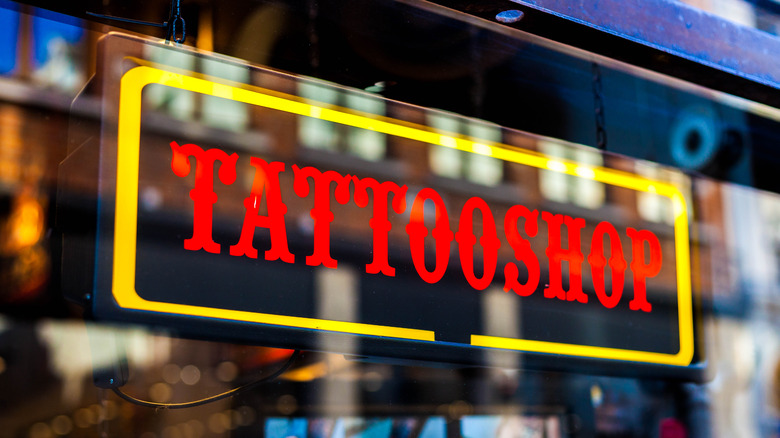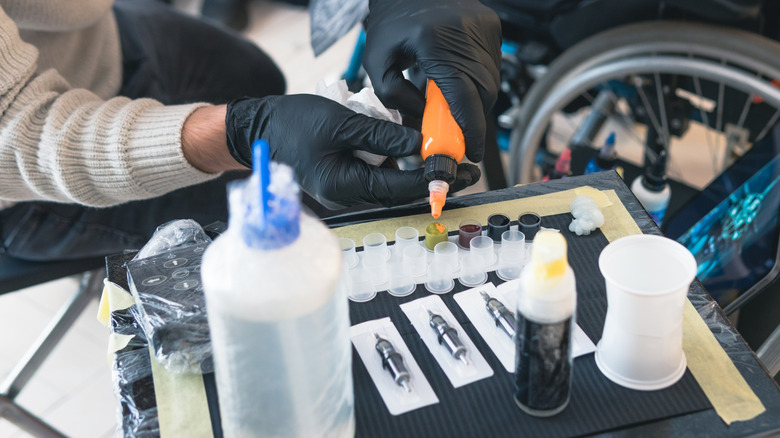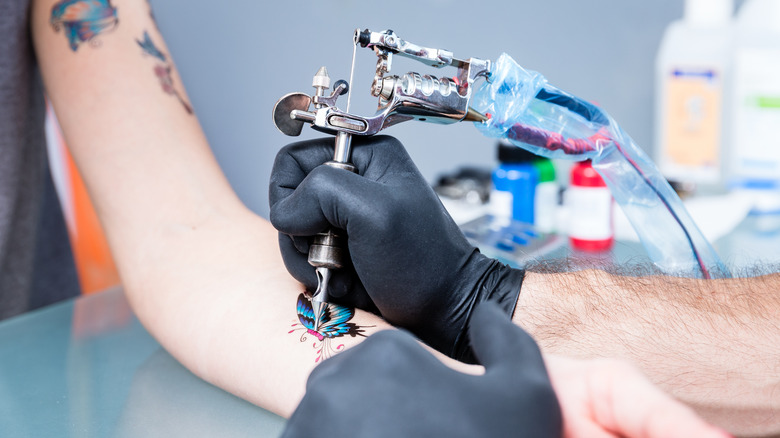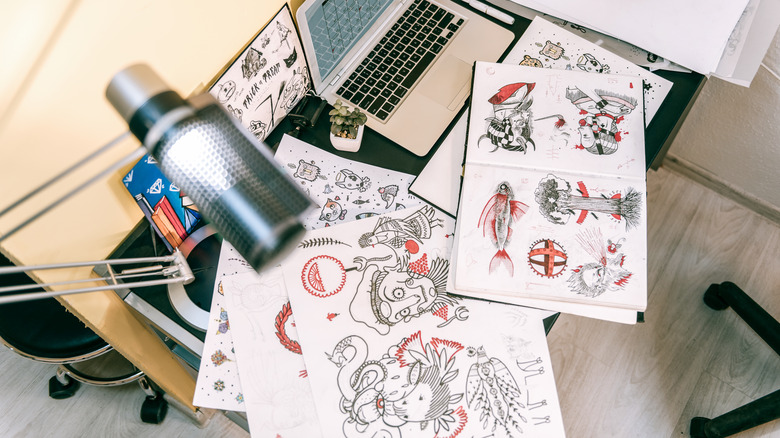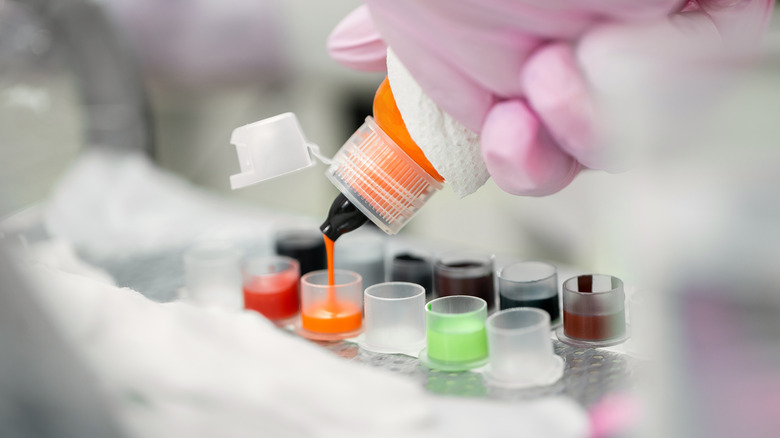Red Flags You Should Never Ignore When Going To A Tattoo Parlor
Getting a tattoo is a big commitment that requires time and thought in every stage of the planning process. Once you've landed on a design, it's time to begin arguably the most important part of the tattoo process: deciding on a shop and artist to execute your vision. Getting a tattoo isn't just about sitting down and getting inked; it's a full experience that requires effective communication all the way through, so it's worth it to take your time and do your research.
Whether you're on your first tattoo or your 10th, a reputable shop is non-negotiable. Making sure the shop you're going to is safe and reliable could be the difference between a properly healed tattoo and a design you love, versus an infection of some kind or the need for a cover-up. As Olympia, Washington-based tattoo artist Nickhole Arcade told Inside Out, "you may as well spend the money and do it right the first time." So before you go running to the closest tattoo shop, do some groundwork.
If the shop is unclean
A tattoo parlor is not unlike a doctor's office, in that the first thing you should notice about it is cleanliness. In an article for Refinery 29, artist Stella Luo of Golden Iron Tattoo in Toronto said that a good indicator of a clean shop is that it smells like disinfectant. She explained that if the shop smells "like a hospital," it's a good sign that the shop has the proper standard of cleanliness.
Nor should cleanliness only apply to the front of the shop. Inked Magazine says that the cleanliness of a shop's bathroom can be a gauge of their overall sanitation processes. If a shop's bathroom is dirty or smells strange, then it could be an indicator of just how closely they're following proper procedures. Likewise, if there seems to be a pileup of trash in the shop or right outside the building, it may be a sign that sanitation rules are not being taken seriously.
If basic safety measures are missing
Safety is the most important thing to consider when choosing a place to get your tattoo. According to Inked Magazine, there are several safety procedures that the tattoo industry is unbending on and that you should be aware of before you get your tattoo. The first safety red flag is if a shop doesn't have what is called a "sharps box." A sharps box is a clearly labelled box where needles and cartridges can be disposed of safely, as they should never be simply dropped in the trash.
Another safety red flag is if an artist doesn't display their Bloodborne Pathogens Certificate. Like many businesses, the tattoo industry has rigorous training processes for artists. A part of this training is a course in bloodborne pathogens and infection control. If an artist doesn't display this certificate it may be a red flag, as their certification could be out of date.
A trustworthy tattoo shop will be following proper sanitation techniques for all equipment. If a shop doesn't cover the clip cords for needles, machines, or soap bottles, it's definitely a red flag.
If an artist's portfolio isn't available
Viewing an artist's previous work is crucial before getting a tattoo. It ensures that you're in the hands of a high-caliber artist and that you're working with someone who specializes in the kinds of designs you have in mind. According to North Carolina-based tattoo artist Kelly Kapowski, viewing an artist's work ahead of time can ensure that they're a "perfect fit" for you (via Insider).
With the advent of social media, many tattoo artists keep their portfolios online on a shop website or on Instagram. However, according to New York City tattoo artist Evan Kim for Refinery 29, if you tour a tattoo shop, "you should be able to see their work on display and in books." If an artist doesn't have their previous work anywhere for you to view, it can be an indicator of potential concerns. According to Toronto artist Stella Luo, "it could be that they're an apprentice, which you have an obligation to know, or there might be some practices they're trying to hide."
If the tattoos are really cheap
There is a saying among tattoo artists and enthusiasts alike that offers some wisdom for getting your first tattoo: "Good tattoos aren't cheap, and cheap tattoos aren't good" (via Refinery 29). While a cheap deal on your dream tattoo is tempting, it could have potential harmful effects in the long run. That's because you're paying for a lot more than just the ink that goes into your body. Stella Luo explains that the specifics of the tattoo can vary the price, from the "size, level of detail, and how much thought and planning goes into the design."
The price is also an indication that you're in good hands during your appointment. In an interview with Inside Out, Montana-based tattoo artist Whitney Marie Donohue explained, "you're paying for the experience and years upon years of learning the trade. It's a lifestyle we commit to make sure you receive something quality that lasts a lifetime." Also factored into the cost is the time, equipment, and materials it takes to open the shop, tattoo the design, and bandage it properly. If the tattoos are cheap, it may be a sign that some of these things are not being done right.
